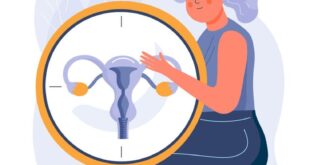
Understanding OCD and Anxiety Disorder
OCD and Anxiety Disorder in Women Obsessive-Compulsive Disorder, more commonly referred to by its initials OCD, is a chronic condition characterized by repeated behaviors (compulsions) and intrusive thoughts (obsessions). Due to constant worry brought on by hormonal fluctuations and social pressures, anxiety disorders often accompany OCD; women seem particularly predisposed; The American Psychological Association estimates almost twice as many women experience anxiety than men.
Menstruation, pregnancy and menopause can exacerbate anxiety symptoms; social pressures and multitasking responsibilities further compound existing disorders.
How Mental Health Affects Gastronymetry?
Our gut is often called our second brain; its vast network of neurons respond to emotional changes more readily than our primary cerebral cortex; thus when someone struggles with persistent anxiety or OCD symptoms, their digestive tract could react adversely.
Cortisol levels, our primary stress hormone, have the power to alter gut motility, raise stomach acidity levels and alter our gut flora balance over time, leading to chronic inflammation and digestive disorders.
Anxiety and OCD Affect Gastrolytes There can be several adverse impacts of anxiety and OCD on GIT health; symptoms could include:
- Cramps or Stomach Pain.
- Gas and bloat, nausea, diarrhea or constipation; acid reflux/heartburn. Reduced appetite or emotional eating can occur.
- Irritable Bowel Syndrome, or IBS, affects an estimated 15-30% of the global population and may manifest with symptoms ranging from stomach cramps and constipation, diarrhea and other digestive conditions to fatigue and joint pain.
- Women under stress commonly report increased food sensitivities to gluten, dairy and processed sugar goods; such digestive strain limits their performance to its maximum level.
- Worry can disrupt our gut integrity and immune systems, leading to inflammation, malabsorption of nutrients, and frequent digestive tract infections.
Anxiety-Driven OCD Problems in Women
Women suffering from anxiety-driven OCD often disrupt the natural communication between their gut and brain, which results in chronic digestive difficulties which aggravate both physical and psychological conditions.
1.Cognitive Behavioral Therapist (CBT)
One of the most successful therapies available to address anxiety and OCD, CBT seeks to reinterpret harmful cognitive patterns and decrease obsessive behaviour by reframing harmful associations into less harmful ones, in an attempt to decrease OCD behavior.
2.Eat for Improved Gut Flora.
Optimizing gut flora and relieving digestive issues are best accomplished through eating meals rich in probiotics, anti-inflammatory foods and fiber. Furthermore, cutting back on processed food as well as caffeine or excessive sugar consumption also plays a part.
3.Stress Management and Consciousness
Relaxation techniques such as yoga, mediation, deep breathing exercises and journal writing have proven extremely useful for managing stress and improving digestion.
4.Get Moving. Physical exercise has numerous health and psychological advantages that range from increasing endorphin production to encouraging regular bowel movements and treating any stress-induced intestinal problems,
Psychological and Medical Support
Seeking professional assistance via pharmaceutical treatments like selective serotonin reuptake inhibitors (SSRIs) or anti-anxiety medicines may provide great help; consulting both psychiatrists and gastroenterologists about potential therapies will guarantee tailored plans of care.
SEE MORE:https://healthybodyboost.net/wp-admin/post.php?post=2245&action=edit



